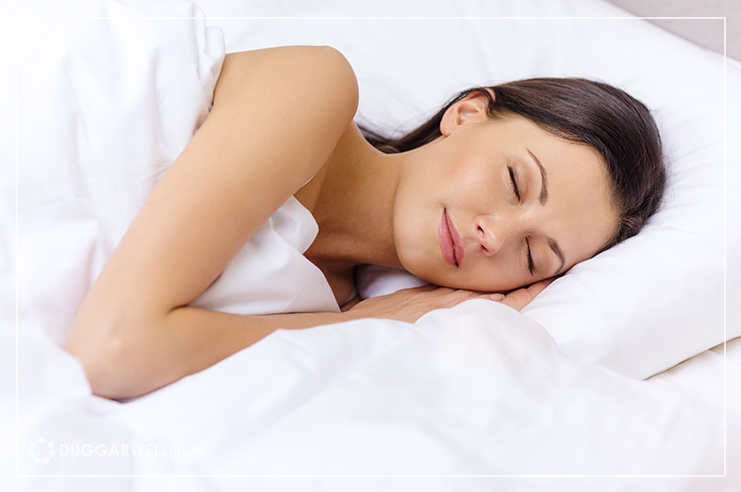Sleep is one of those great mysteries of life, scientists are still trying to understand all the complexities of sleep. We do know that good sleep is the cornerstone of good health it is, in fact, one of our 7 Pillars of Wellness.
Sleep studies have concluded that 6-10 hours of sleep are ideal for adults. That means that you could fall somewhere between those hours. Did you know that too much or too little sleep can have adverse effects on your health?
I don’t know about you, but too much sleep is not an issue that I am dealing with. It’s getting enough sleep that seems to be what most people struggle with. I know I do really well if I get 7 -8 hours, others may need more or less, you just need to experiment and see how many hours you optimally need every night.
Not getting enough sleep can weaken your immune system, disrupt your blood sugar regulation, impact your ability to think clearly which will impair your performance of both mental and physical tasks. It can also cause an increase in stress-related diseases like heart disease, stomach ulcers, constipation, and mood disorders. You can’t make up lost sleep, lost sleep is gone forever.
Here are 10 tips to help improve your sleep:
- Sleep in complete darkness.
- Keep the temperature in your bedroom relatively cool, 70 is an optimal sleeping temperature.
- Reserve your bed for sleeping, don’t read, watch TV, or catch up on emails in bed.
- Go to bed before 11 p.m. Our body is set to follow natural patterns of renewal and rebuilding and some important processes happen between the hours of 11 p.m. and 1 a.m. The adrenal system recharges, the liver and gallbladder dump toxins allowing your body time to process and eliminate them.
- Establish a bedtime routine that helps you prepare for sleep for both body and mind. Do these activities before getting into bed. Do some writing, take a hot bath or shower, read something inspiring and uplifting, etc.
- Avoid screen time at least 2 hours before bed. Lights from TV, computer, and tablet screens send our brain mixed messages about what time of day it really is and make it difficult to achieve deep sleep.
- Exercise in the morning. Exercise actually boosts your energy throughout the day and will also help you sleep better.
- Keep your bed-time and wake-times consistent. Waking up and going to sleep at the same time every day, even on weekends, will get you into a rhythm.
- Be cautious about eating and drinking before bed. If you need to eat before bed have a small serving of protein and some fruit. A handful of raw nuts and some apple slices will help regulate your blood sugar during sleep. Don’t drink too much before bedtime. Getting up to use the bathroom can disrupt important sleep patterns.
- Have a caffeine curfew. If your nervous system is charged up from caffeine it can disrupt your sleep patterns. It often takes 6-8 hours for the body to get all the caffeine out of your body. Setting a 4 pm caffeine curfew could help you get better sleep.
 160 N Main, Bountiful, UT 84010
160 N Main, Bountiful, UT 84010  801-677-7878
801-677-7878

6 responses to “Sleep Well”
[…] you are having a hard time sleeping, review the simple tips I covered in this blog post and if you feel that you need additional help, schedule a consultation and we’ll apply the […]
[…] Oftentimes when we experience high amounts of stress or worry it can be difficult to get a good night’s sleep. If you are having trouble sleeping, read our 10 Tips to Improve your Sleep. […]
I have neck issues and find that sleeping on my back with no pillow (firm mattress)is best most of the time. What do you recommend for a pillow?
We often recommend a pillow filled with millet hulls for situations like this. It is very adaptable to different sleeping positions and can be quite flat while still retaining support for the neck. They are less than $50 and we carry a few in the office.
Thanks! I’ll think about it.
[…] talked about sleep before, sleep is one of our Simple 7 Strategies for creating a healthy lifestyle. It is vital […]